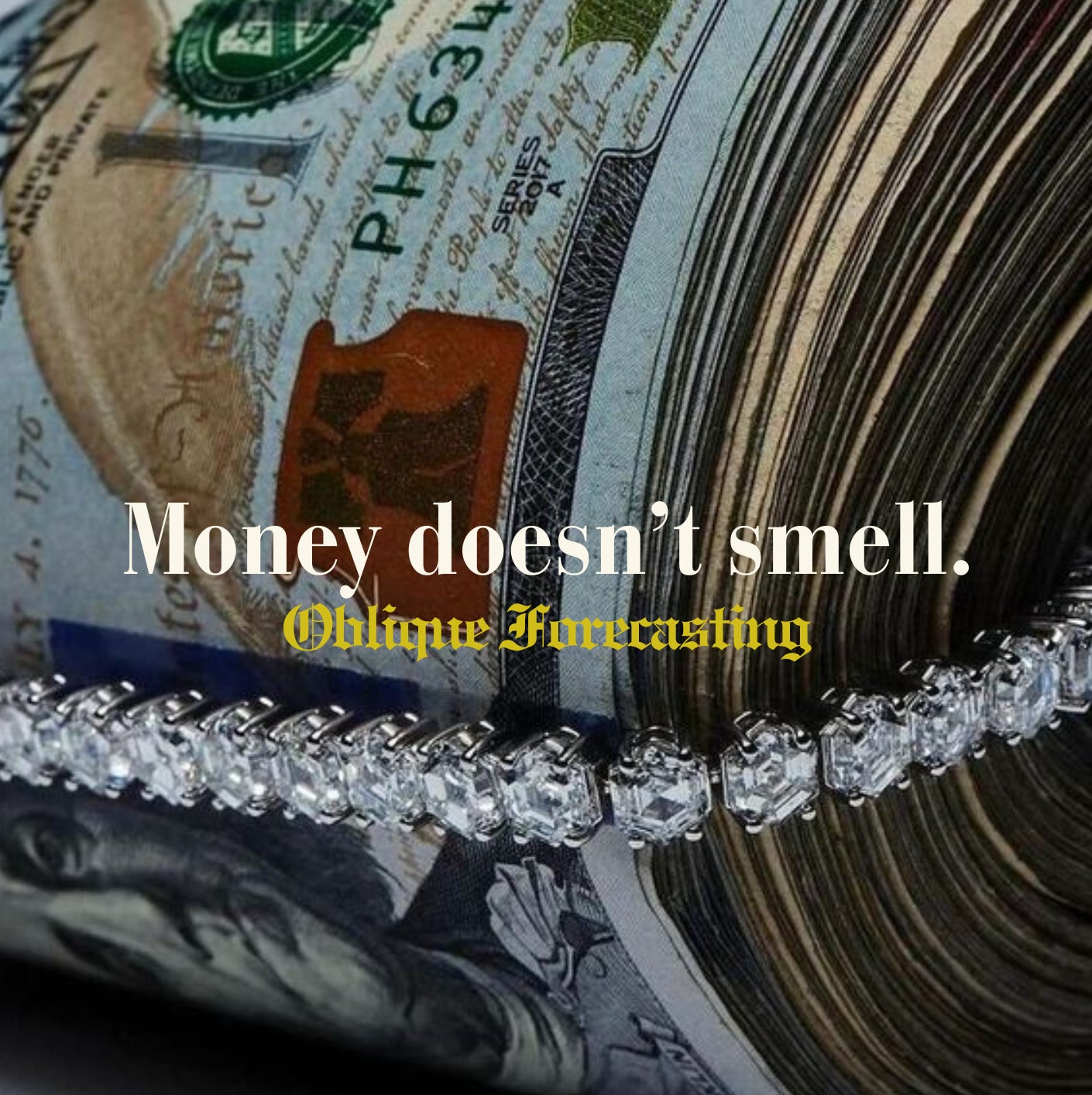Hiiiiii. A short forecasting/internal debate today. If you’re new here, a disclaimer: I’m not a financial advisor. The content of this newsletter is not investment advice and does not constitute a recommendation of any investment product.
xoxo Esther 💋
Before we dig in, my fav meme of the week:
Esther’s Buy/Sell List:
💰 What I’m investing in
🧠 Conscious investment, or is that an oxymoron? Are you a good person? I do hope you consider yourself so if you read Oblique Forecasting. But it’s not a prerequisite.
Do you recycle? Do you pick public transport over cars? Do you travel by train rather than plane? Do you favour locally-grown vegetables over red meat? Do you live your life without lying, cheating or stealing?
Now how’s your investment strategy? Whether you invest privately or manage an investment fund, do you put your money into what you know will generate long-term cash or what you deem ethically sound? Are those two notions incompatible or are you able to find a compromise?
Turns out, some people care about where they put their money. With the rise of so-called ethical investment companies comes the inevitable greenwashing:
BlackRock, the world’s largest investment manager, is positioning itself as a leader in integrating ESG considerations into its investment strategies. It has forecast that, by 2030, at least 75% of its investments will be directed towards businesses with science-based targets to reduce greenhouse gas emissions. [source]
The upcoming Klarna IPO presents an ethical dilemma. On one hand, the buy-now-pay-later model has been criticised for potentially encouraging consumer debt and targeting younger, financially vulnerable populations. The company's potential for financial inclusion and disrupting traditional banking models complicates this narrative.
Meanwhile, the European defence sector reveals an even more nuanced ethical landscape. Companies like Thales [HO], Rheinmetall [RHM], Leonardo [LDO], and Saab [SAAB-B] find themselves in a morally ambiguous position. Russia's invasion of Ukraine has dramatically shifted the geopolitical calculus, transforming defence contractors from potential merchants of war to critical providers of national security. Thales, with its advanced defence and aerospace technologies, has seen increased legitimacy in supporting Ukraine's defensive capabilities. Rheinmetall's pivot to supplying defensive equipment is a good example of how these companies have gone from potential war profiteers to something closer to peace-keeping tech providers.
My own stock portfolio is a prime example of this ethical dilemma: L'Oréal [OR], LVMH [MC], Kering [KER], Stellantis [STLAP]1. L'Oréal dabbles in sustainable beauty, but is it enough to offset the packaging, the microplastics, and the sheer waste of it all? The recent musical chairs shuffle between all creative directors within LVMH and Kering shows one thing—profit comes first. And Stellantis? Electric vehicles. They're trying.
Here's the thing: ethical investing isn't about being perfect. It's about asking questions, pushing boundaries, and making slightly better choices each time. Every investment is a tiny vote for the world you want to see. But here’s the good news: buying stock is reversible and you can sell whenever.
If this sparked something in you: Jacques Attali2's "Economy of Life" offers his lens to consider all this. He pushes towards an economic model that values human potential over pure profit—where the true measure of wealth isn't just financial, but how we nurture human capabilities and collective well-being. Writing essays and authoring reports for the government is one thing, but he also leads Arion, a VC fund, to back projects accordingly.
If you can’t get enough of me, here’s my Instagram. Here’s my LinkedIn. Choose wisely.
Among others!






